Deacon Profile: Caroline Bryant
November 19, 2020
As a major in politics and international affairs, senior Caroline Bryant enjoys running, reading and talking about foreign policy. Wanting to share this passion with others, Bryant established a chapter of the Alexander Hamilton Society (AHS) on campus to encourage students to debate and hold conversations about foreign policy.
While president of the first foreign policy organization at the university, Bryant has organized virtual speaker events and discussion groups while also navigating the challenges of the COVID-19 pandemic. With this promising start to the organization, she hopes to continue to see the program thrive and flourish even after she graduates in the spring.
What is the Alexander Hamilton Society?
The Alexander Hamilton Society is a non-partisan, not-for-profit organization that seeks to engage college students in a rigorous conversation about foreign policy, national security, and economics. Its founders met in 2010 and decided that there wasn’t a robust foreign policy and national security conversation on college campuses and sought to change that. The organization provides both intellectual and professional programming for students, connecting them with others who like foreign policy while also helping students network in D.C. and find jobs.
How did you hear about the Alexander Hamilton Society?
I interned at the Alexander Hamilton Society two summers ago. I wanted to work somewhere that had an international relations focus but wasn’t sure what existed. A family friend encouraged me to apply the Alexander Hamilton Society because of its specific focus on college students. So, I applied, they accepted me, and I spent a summer learning all I could about the organization.
That’s awesome. What was your favorite part of your internship?
In the spring of my sophomore year, I fell in love with international relations through my U.S. Foreign Policy with Professor [Will] Walldorf here. But, I truthfully wasn’t sure what that would look like as a career and didn’t know many other students at the time who loved international relations. Each summer, AHS puts on a massive conference which convenes other AHS chapter officers from across the country together for a three-day event. Each day of the conference there are panels and discussions with various foreign policy and national security practitioners. Afterwards, all of the students would go out to dinner and discuss and debate the day’s events. I loved being with so many bright, engaging college students that also appreciated international relations, and it made me feel like foreign policy was a career I could see myself going in to.
Is that why you decided to establish a chapter at Wake Forest?
I realized that although Wake Forest has College Republicans and College Democrats, it doesn’t have anything that is centered around foreign policy and is specifically nonpartisan. I felt like a rigorous foreign policy conversation that wasn’t connected to domestic politics was really needed on campus, and so here we are!
What types of events have you been able to have this semester?
For our first event, we invited the dean of the Johns Hopkins School of Advanced International Studies, Dr. Eliot Cohen, to speak on America’s role in the world. He gave a thoughtful, nuanced, and incredibly useful reflection. Dr. Cohen is also a deep lover of poetry and literature, and so his talk managed to weave politics, history, and culture together beautifully. We couldn’t have asked for a better speaker. Afterwards, Johns Hopkins emailed me to encourage Wake Forest students to apply to its graduate school. It was wonderful to be able to serve as a connector between two schools I have come to love.
For our second event we had Dr. Will Inboden, Executive Director of the Clements Center for National Security, came and give a reflection on Trump’s foreign policy. He provided dozens of insights on where the United States is situated as we look ahead to President-Elect Biden’s term.
We also have discussion groups on campus for people that want to hang out with other like-minded people and want to talk about foreign policy more regularly. We put those on about once a week.
Do you have any plans for next semester about how you want to continue to expand and grow your membership?
Ideally, we would have in-person events, but sadly, we just can’t do that because of COVID-19. So, I think it’d be really fun to continue working with other organizations on campus. We co-sponsored our past event with College Democrats and College Republicans, which I really loved. I would love to continue that in the future to continue being a bipartisan chapter where Republicans and Democrats can meet to engage in conversation and debate.
Do you foresee any partnership with the Wake Washington program?
Definitely. The Alexander Hamilton Society has chapters all across the U.S. at various colleges, but also kind of has some kind of post-undergraduate professional chapters. They have a Washington D.C. chapter, and they put on a lot of events throughout the summer. I could see a really great relationship with Wake Washington.
We’ve also been really grateful for how supportive the Politics Department has been of our organization. They’ve been sponsoring us, so I look forward to continuing that partnership down the road, as well.
Looking back on the first semester of the chapter, what has been most successful and what do you think you would change?
I would say our two big speaker events were enormously successful. I think that at our first event we had like over 90 people, and at our second event, we had over 100. I think those were terrific and I look forward to continuing those down the road.
I’d also say just with COVID-19 it’s been a little bit harder to get discussion groups off the ground, because people are so spread out. We’ve had some in-person, and then we did some via Zoom, and I think it’s just hard since everyone’s pretty fed up with Zoom. So, I think those are a bit trickier, but I also think they’re a great resource that will always be available for people who want to meet every single week with people to talk about foreign policy.
Is there anything else that you enjoy about AHS?
Two final thoughts! The national organization puts on various events throughout the year via Zoom. Recently, they have started forming reading groups with various foreign policy experts. Right now, I’m in a book club with the former ambassador to the E.U. It’s pretty remarkable that an organization exists that would connect college students to these extraordinary individuals that want to get to know you and read their favorite book with you.
In that vein, I think the organization does a great job of connecting students with wiser, older scholars and leaders that could be mentors. As there are fewer women in the foreign policy world, I’ve been grateful for the ones that I’ve met that have been incredibly kind in offering me help as I get started in this world.


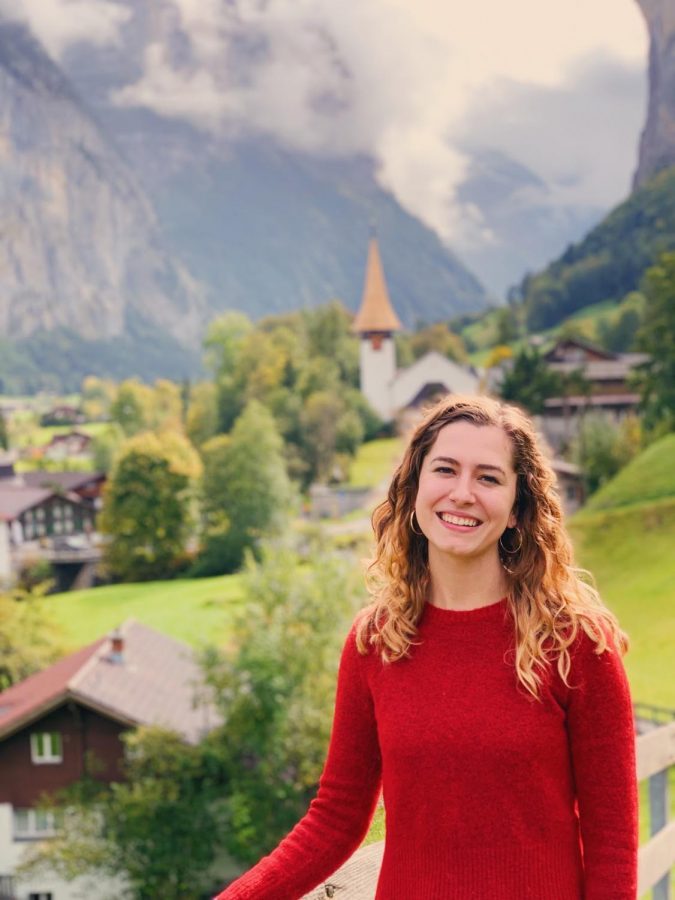






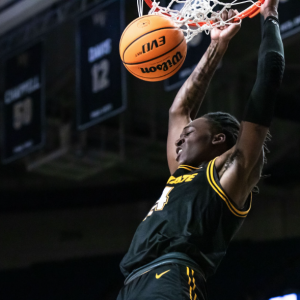


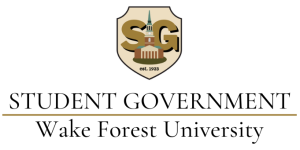

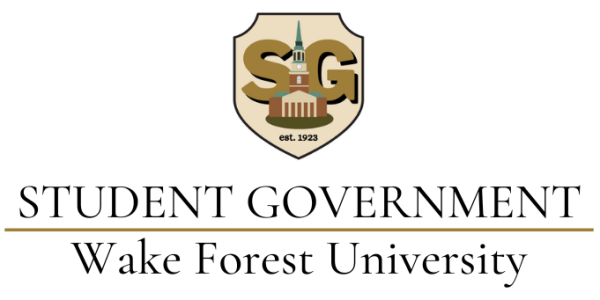
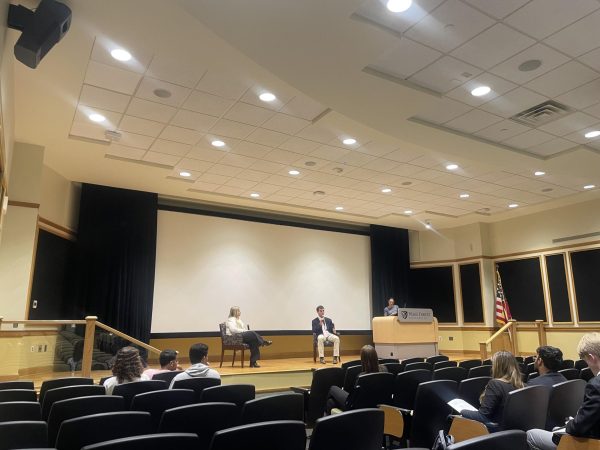



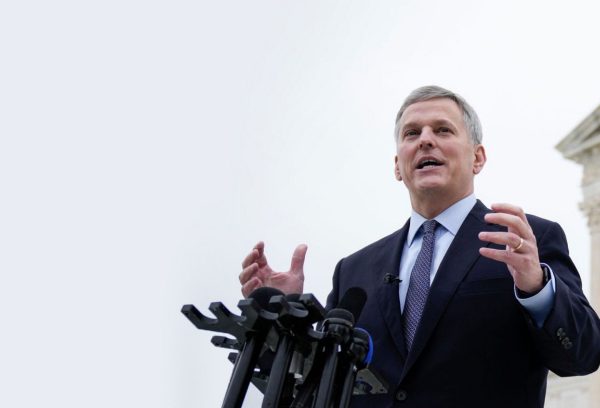

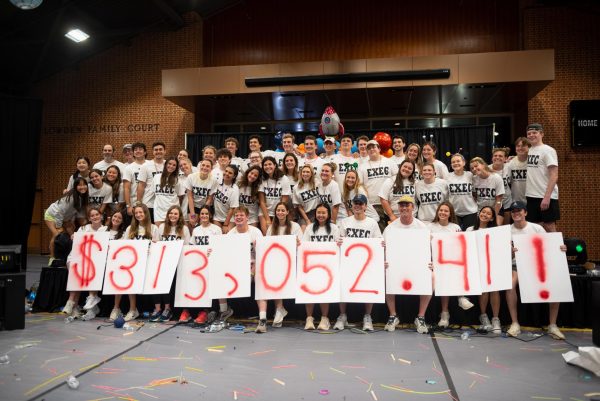
Gary & Carolyn Bryant • Nov 30, 2020 at 10:19 am
So glad to read of Wake’s interest in bipartisan exploration & discussion of important issues. AHS seems to be a great platform for fruitful beginnings. It’s also great to see our granddaughter interviewed by another talented student for the School paper.